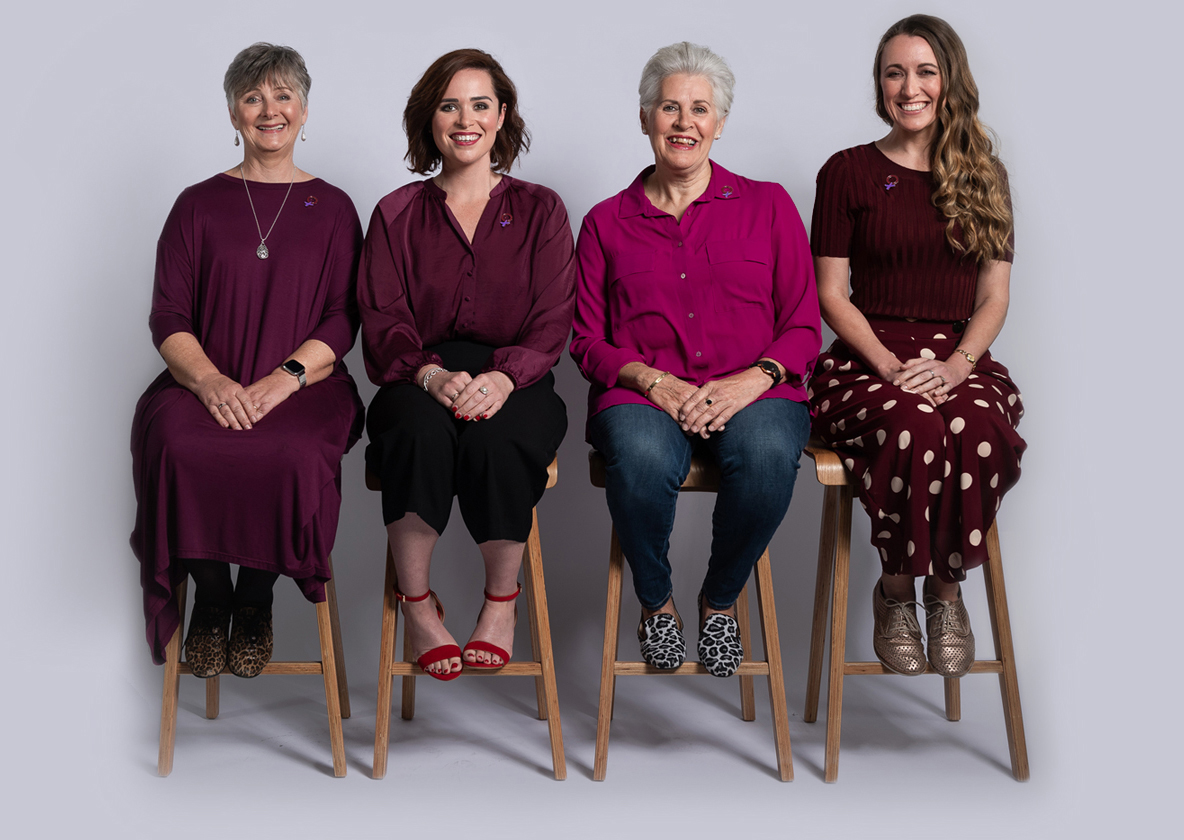What is
ovarian cancer?
|
Ovarian cancer is a gynaecological cancer arising in the ovaries, fallopian tubes or lining of the abdominal cavity (peritoneum). Ovarian cancer typically appears as masses on the ovaries or fallopian tubes but can spread to other locations in the abdomen. Ovarian cancer can cause abnormalities in ovarian function, resulting in infertility and other complications. There are a range of different types of tumours that can arise in the ovary and the type of tumour will determine the treatment required and the longer-term prognosis. There is currently no screening or early detection method for ovarian cancer |
|
|---|---|
Ovarian cancer symptoms
Symptoms of ovarian cancer include:
- Persistent abdominal bloating, or an increase in abdominal size
- Abdominal or pelvic pain
- Difficulty eating, loss of appetite or feeling full quickly
- The urge to urinate often
Though patients may also experience additional symptoms such as:
- Indigestion, nausea, diarrhoea or a change in bowel habits
- Lower back pain
- Menstrual inconsistencies (such as bleeding after menopause or between periods)
- Weight fluctuations
- Fatigue
- Discomfort or bleeding during sexual intercourse
As there is no early screening or detection test for ovarian cancer, it is critical that women consult a doctor if they experience the above symptoms for a period of more than three weeks.
What causes
ovarian cancer?
|
There are several factors that make an individual’s risk of developing ovarian cancer higher, these include: |
|
|---|---|
- Age – the risk of developing ovarian cancer increases as women get older.
- Inherited genes – 20% of ovarian cancers arise in women who have inherited a gene mutation which makes them more likely to develop ovarian cancer. These women often have other family member who have had ovarian breast or bowel cancer. Women with BRCA 1 & 2 mutations or Lynch syndrome have a higher risk of developing ovarian cancer, than the general population.
- Lifestyle and environmental factors – tobacco smoking, obesity and lack of exercise can contribute to a greater risk of ovarian cancer.
- The use of HRT (hormone replacement therapy) is also linked to an increased risk of developing ovarian cancer.
- Medical conditions such as endometriosis
- Some factors reduce the risk of developing ovarian cancer, such as having children, use of the oral contraceptive pill and gynaecological surgery – tubal ligation (having your tubes tied).
OASIS - A WORLD CLASS OVARIAN CANCER INITIATIVE
Our knowledge about ovarian cancer has exploded over the last decade, with big advances in research starting to translate to the development of more personalised treatment options in the clinic.
ANZGOG’s OASIS Initiative is focussed on helping move research discoveries from laboratories and into clinical trials more quickly.
About ovarian cancer research
Funds raised through WomenCan go towards clinical trials conducted by the Australia New Zealand Gynaecological Oncology Group (ANZGOG).
As the peak ovarian cancer research organisation in Australia and New Zealand, ANZGOG conducts ovarian cancer research trials for the prevention, diagnosis and treatment of ovarian cancer.
Ovarian cancer statistics
- Approximately one in 100 women will be diagnosed with ovarian cancer in their lifetime.
- Ovarian cancer is the eighth most common type of cancer in Australia and the sixth most common type of cancer to lead to loss of life.
- Approximately 1,815 Australian women and 340 New Zealand women are diagnosed with ovarian cancer each year.
- It is estimated that 20% of ovarian cancer cases are linked to inherited gene mutations.
- Average age of diagnosis is 64 years old, though ovarian cancer can occur in younger women.
- The five-year survival rate of ovarian cancer is 49% for Australian women and 38% for New Zealand women.

PEOPLE WITH LIVED EXPERIENCE SOUGHT FOR RESEARCH ADVISORY ROLES WITH ANZGOG
Expressions of interest are now open to everyone with lived experience of a gynaecological cancer to join ANZGOG's Community Engagement Program as a volunteer research adviser.
"In ovarian cancer we've not known the enemy and we have made very little progress to now. The clouds have parted in the last few years and I think we have a much better idea of what we are up against."
Professor David Bowtell,
Leading ovarian cancer researcher
Help Fund Ovarian Cancer Research
Your donation, whether big or small, can help improve treatment outcomes for patients, fast track new drug therapies and improve methods of ovarian cancer surgery.
Make an ovarian cancer research donation today
Find out more about ANZGOG’s ongoing ovarian cancer research trials
SUBSCRIBE TO OUR NEWSLETTER #TogetherWeCan
Stay informed with the latest news on women’s cancer research

Related Ovarian Cancer Stories

Meet Kristin

Meet Jacinta

Meet Alisha

Meet Elsa

Meet Christine

Meet Anne

Meet Jenny

A ZEST FOR LIFE - Remembering Kate Clayton












